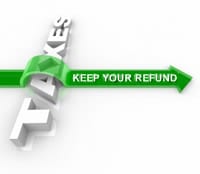We recently purchased a replacement car. We bought my 1995 Jeep in September 1994 and we felt it was time to get another car.
Here are the steps we took before making the purchase:
- Started to look at cars to determine what manufacturer and model we were interested in (looking a pricing)
- Reviewed our finances – how much can we put down as a down payment, how much can we afford as a monthly payment, etc?
- Reviewed our credit to make sure all is well
- Looked at car loan interest rates from several sources to determine rates and terms
- Unfroze it to make it accessible to the lender for a car loan
All this took place over about a four month time frame. Once we determined what car – brand and model, we did our online research for deals (the model and miles). We wanted to be ready to move as soon as we found the car we wanted. It had been a long time since we purchased a car, so we weren’t sure what we wanted in an SUV and we were open to most car manufacturers. This made the search process long, but I knew when we found what we wanted we would be ready.
And it happened a couple of weeks ago, we found the perfect SUV for me. A couple of years old (2016) with hardly any miles (less than 4,000), certified pre-owned and an extended warranty. That was the car for me. Saw it on a Thursday and make the decision on Friday – all our preparation made us ready to go. We picked up the car the following week.






